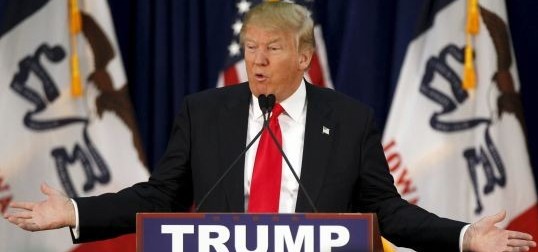PHOTO: Donald Trump: “If he doesn’t win New Hampshire, he’s really on the skids”
Adam Quinn of the University of Birmingham writes for EA about the lessons from Iowa’s caucuses, the first contest in the 2016 US Presidential election, and next week’s primary in New Hampshire:
See also US Analysis: Big Winners in Iowa? Democratic Party and Marco Rubio
1. Donald Trump didn’t win. What does that tell us about the solidity of his on-paper poll leads when it comes to turning out real live voters?
Iowa is a special case, so the real test is in New Hampshire on February 9. If he doesn’t win that, he’s really on the skids.
2. Marco Rubio did very well, all things considered. He’s the biggest Republican winner of the night relative to expectations.
Those expectations will now be raised for New Hampshire, where some candidates who did not fight in Iowa are looking for the same votes. He comes second (or first) there, he’s in a great place overall.
3. Bernie Sanders fighting close to a tie with Hillary Clinton in the Democratic vote is a big achievement, but not enough if he’s to Obama her by turning out armies of new voters.
New Hampshire is discounted for him because he’s “local”, as the Senator from neighboring Vermont, so even if he wins that, I think the overall race still tilts to Clinton. He needed a surprise win here and to take New Hampshire too to put her off the road rather than just slow her down.
I think Iowa being this close means a bullet just whizzed past Clinton’s ear, but it did miss. Just. I am confident, but not certain, that it was the only one coming her way.
4. Some Republican caucus-goers may like Ted Cruz, but no one else does. He’s doomed with the general election electorate even more assuredly than Trump (who is at least capable of wild behaviour and surprises).
Cruz’s win tonight says something about Trump’s support when met with Cruz’s concrete efforts on the ground in Iowa, but I’d still be surprised if this means a Cruz nomination. Democrats would be gleeful inside if it did.

